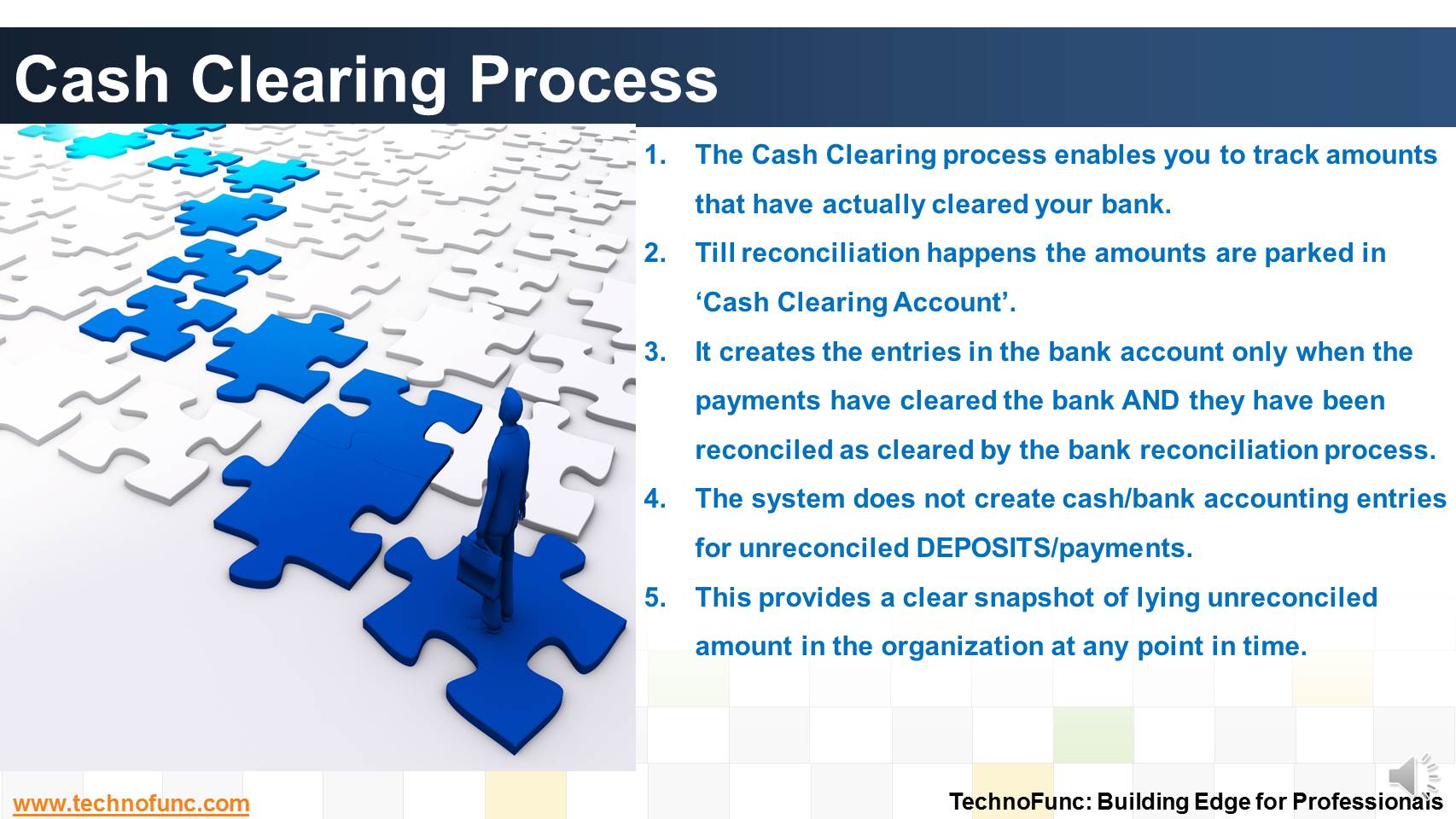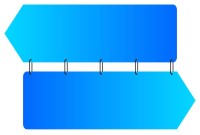- Home
- Business Processes
- Industry Knowledge
- Aerospace Industry
- Automotive Industry
- Banking Domain
- BFSI Industry
- Consumer/ FMCG Industry
- Chemicals Industry
- Engineering & Construction
- Energy Industry
- Education Domain
- Finance Domain
- Hospitality Domain
- Healthcare Industry
- Insurance Domain
- Retail Industry
- Travel and Tourism Domain
- Telecom Industry
- Leadership Skills
- eLearning
- Home
- Functional
- Cash Management
- Cash Clearing Process
Cash Clearing Process
The Cash Clearing process enables you to track amounts that have actually cleared your bank. Till reconciliation happens the amounts are parked in 'Cash Clearing Account'.
Cash Clearing Process
Rather than hitting the bank accounts, in cash clearing systems, the cash/bank transactions are parked in 'Cash Clearing Account'.
Once reconciliation with bank statement is done the reconciled amount is transferred to Cash/Bank Account.
This provides a clear snapshot of lying unreconciled amount in the organization at any point in time.
The Cash/Bank account reflects only the balance that has been reconciled with the transactions of Bank.
The Cash Clearing process enables you to track amounts that have actually cleared your bank versus amounts still floating in the banking system.
The Cash Clearing process creates accounting entries to record the actual settlement in your cash/bank account in general ledger only when you clear the payment transactions in the system during the reconciliation process.
Till reconciliation happens the amounts are parked in 'Cash Clearing Account'.
It creates the entries in the bank account only when the payments have cleared the bank AND they have been reconciled as cleared by the bank reconciliation process.
The system does not create cash/bank accounting entries for unreconciled DEPOSITS/payments.
This provides a clear snapshot of lying unreconciled amount in the organization at any point in time.

Related Links
You May Also Like
-
Treasury has increasingly become a strategic business partner across all areas of the business, adding value to the operating divisions of the company. Managing activities that were traditionally carried out within the general finance function. Learn about the drivers for this change.
-
Many different accounts are used in finance. Understand the representation and nature of clearing account in context of accounting, finance and ERP Systems.
-
How the inflow and outflow of cash is linked to the operating cycles of the business? Learn the cash management process in an enterprize and it's key components.
-
Collection Float is the time spent to collect receivables. Collection float is the sum total of time taken by Invoice Float; Mail Float; Processing Float and Availability Float. Explore more!
-
Unravel the mystery behind clearing. Why we use clearing accounts. Find the relevance of word "Clearing" in business context.
-
Bank Reconciliation is a PROCESS to Validate the bank balance in the general ledger With Bank Statement. Learn the bank recon process.
-
Technology has enabled the treasury function by providing various solutions to manage it's complicated tasks. This article explains various types of treasury management systems available in the market.
-
Complete Bank Reconciliation Process
Bank Reconciliation Process is a eight step process starting from uploading the Bank Statement to finally posting the entries in General Ledger. Learn the Eight Steps in Detail!
-
Before we dive into cash management, let us fist understand what we mean by cash and what constitutes cash in context of cash management process.
Explore Our Free Training Articles or
Sign Up to Start With Our eLearning Courses

About Us
Learning
© 2023 TechnoFunc, All Rights Reserved










